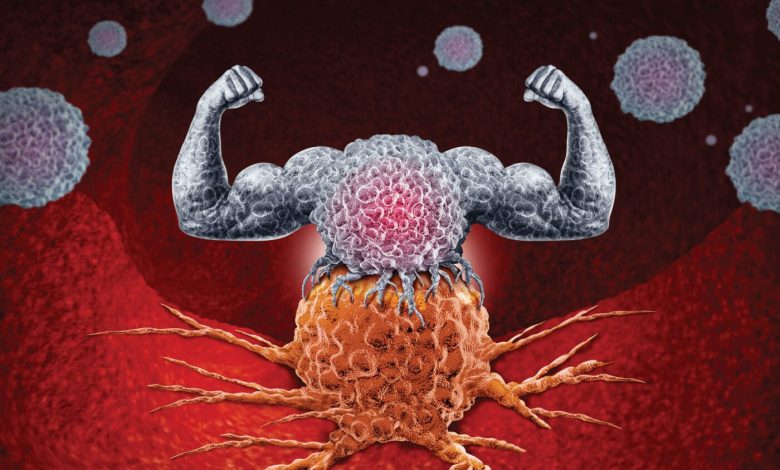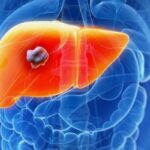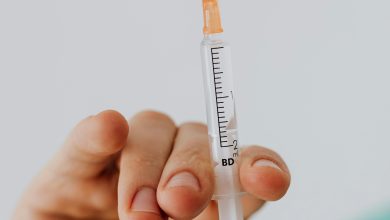How Immunotherapy Fights Penile Cancer

Penile cancer is a rare type of cancer that develops in the tissues of the penis. The penis is the external male reproductive organ involved in urination, sexual intercourse, and reproduction. Penile cancer usually begins in the skin cells that line the penis, and it can spread to other parts of the body if not detected and treated early.
The exact cause of penile cancer is not always clear, but certain risk factors have been associated with its development. These risk factors include:
1. Human Papillomavirus (HPV) Infection: Certain strains of HPV are linked to an increased risk of penile cancer, much like they are associated with cervical cancer in women.
2. Lack of Hygiene: Poor hygiene practices, such as not cleaning the area beneath the foreskin (in uncircumcised men), can increase the risk of penile cancer.
3. Smoking: Smoking tobacco is linked to a higher likelihood of developing penile cancer.
4. Age: The risk of penile cancer increases with age, with most cases diagnosed in men over 50.
5. Phimosis: This condition involves the inability to retract the foreskin, leading to inflammation and an increased risk of cancer.
6. Circumcision Status: Men who are uncircumcised may have a slightly higher risk of penile cancer, particularly if proper hygiene isn’t maintained.
7. Personal Hygiene and Socioeconomic Factors: Poor socioeconomic conditions and inadequate access to healthcare may contribute to a higher risk of penile cancer.
Penile cancer is relatively uncommon, accounting for a small percentage of all cancers in men. Its occurrence varies by geographic region and is more common in developing countries than in developed nations. In many developed countries, the rates of penile cancer have been decreasing, possibly due to improved hygiene practices and awareness about risk factors.
Early detection and treatment are crucial for better outcomes. Symptoms of penile cancer may include changes in the skin of the penis, lumps or growths, redness or irritation, and unusual discharge. Regular self-examinations and routine medical check-ups can aid in the early identification of any abnormalities.
Researchers have recently uncovered a glimmer of hope for men grappling with the challenges of penile cancer. This newfound optimism stems from the realm of immunotherapy, a groundbreaking approach to treatment that holds the potential to revolutionize the landscape of cancer management.
How Immunotherapy Fights Penile Cancer
A recent study has cast a promising light on the potential of immunotherapy to combat penile cancer, particularly in cases where the disease has progressed to an advanced stage or spread to other parts of the body. The focus of this research endeavor was centered on locally advanced penile squamous cell carcinoma and cases where the cancer had metastasized, presenting an intricate challenge for both patients and medical practitioners.
The investigators delved into the realm of immune checkpoint inhibitors, a groundbreaking class of drugs that have showcased remarkable efficacy in reinvigorating the immune system’s ability to combat cancer cells. The results of this study offered encouraging insights into the potential benefits of immune checkpoint inhibitors for a subset of patients grappling with advanced penile squamous cell carcinoma.
Dr. Amin Nassar, a notable member of the Yale Cancer Center in New Haven, Connecticut, and a clinical fellow at Yale School of Medicine, expressed the significance of these findings. He emphasized that the evidence points towards the effectiveness of immune checkpoint inhibitors in addressing the intricacies of penile squamous cell carcinoma. He further highlighted the necessity of conducting translational studies and biomarker-based research to accurately identify individuals who are most likely to derive substantial benefits from this form of therapy. Such targeted approaches would inevitably improve outcomes for those enduring the challenges of penile cancer.
To conduct the study, the researchers turned their attention to a cohort of 92 patients diagnosed with this rare form of cancer spanning the years from 2015 to 2022. The study primarily revolved around the administration of notable immunotherapy drugs like pembrolizumab, nivolumab, and cemiplimab. Notably, certain patients were subjected to a combination of nivolumab and ipilimumab.
The outcomes revealed that approximately 13% of all patients, and a significant 35% of men with metastases limited to lymph nodes, exhibited positive responses to the immunotherapy drugs. The average overall survival rate was reported to be 9.8 months, shedding light on the potential extension of life expectancy through this treatment avenue. However, it’s essential to acknowledge that 29% of patients experienced adverse reactions to the treatment, underscoring the complexity of balancing therapeutic benefits with potential side effects.
Dr. Talal El Zarif, an oncology research fellow at Dana-Farber Cancer Institute in Boston and a member of the Yale Cancer Center, highlighted the study’s role in advancing therapeutic options for this rare form of cancer. He expressed hope for continued enhancements in response and survival rates for patients engaged in the fight against penile cancer.
The study’s comprehensive findings were disseminated in the August 11th edition of the Journal of the National Cancer Institute, marking a significant contribution to the evolving landscape of cancer treatment and providing renewed optimism for those facing the challenges of penile cancer.





